Farm life. It’s quite romantic. Or rather, romanticized.
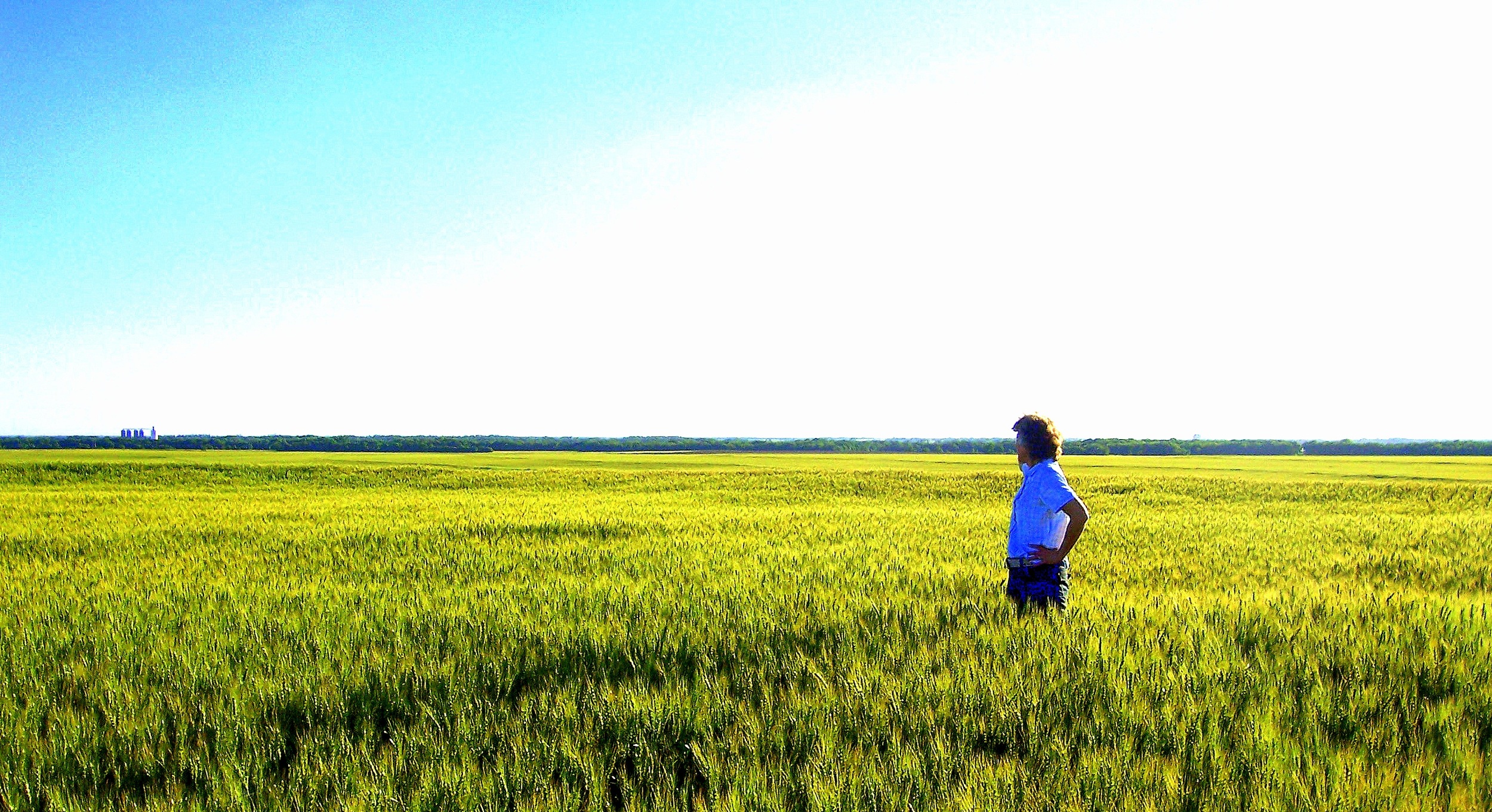
Margaret Scheufler, mother, farmer, businesswoman, standing in an almost-ripe wheat field
When I talk to anybody I’ve ever met who has lived in a city — or even in a town just miles away from farmland — I’m often surprised by what they think a farm is. I’m also surprised (and a little concerned) at how little they know about where their food comes from.
I’ve talked with many concerned eaters about the safety, ethics, environmental impact, etc. of where their food comes. Thanks to many (partly true) documentaries and books, many people think they understand the inner workings of an “industrial” farm — without ever having stepped foot on an actual farm.
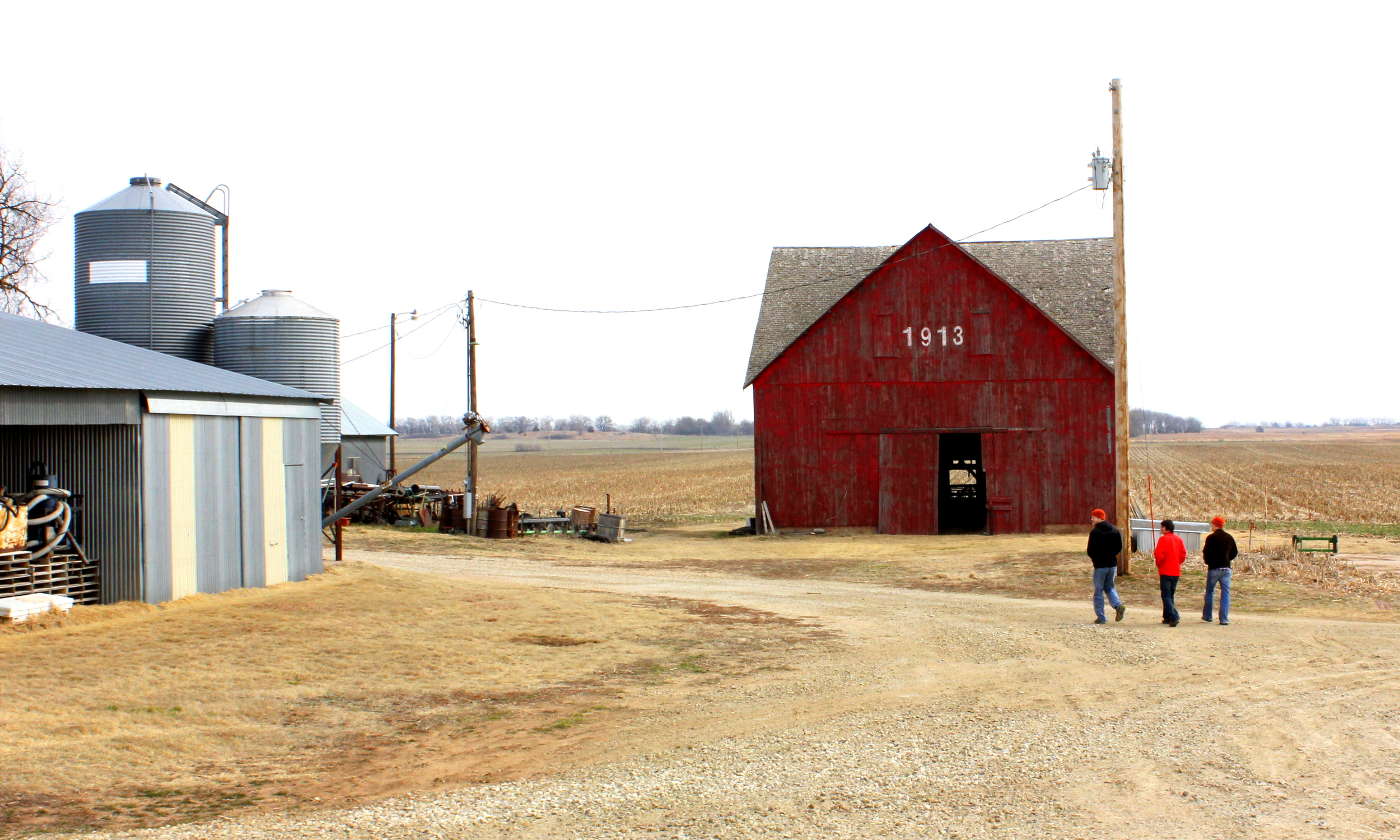
Friends touring Scheufler Farms, Inc.
As my dad always said, there are always two sides to every story. And then there’s the truth.
Side #1: The Family Farm
*Cue sunny, happy music*
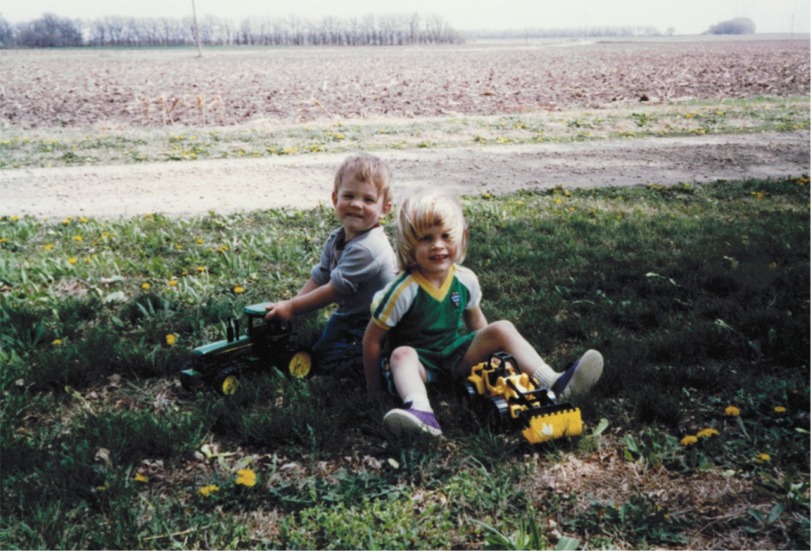
Brother Ray and little Ann, circa 1991
A rooster crows to welcome the sun to a new day as the farmer wakes early to milk the cows. Baby chicks flock with their mamas, racing each other to get the worm. The horse whinnies, reminding the farmer that life is all around him.
Outside the barn, the farmer’s wife smiles and stands, wiping her brow from the exertion of hoeing the weeds from the organic garden rows. Later she will transform this produce into gallons of salsa, pickles, and fermented goodness to enjoy all winter long.
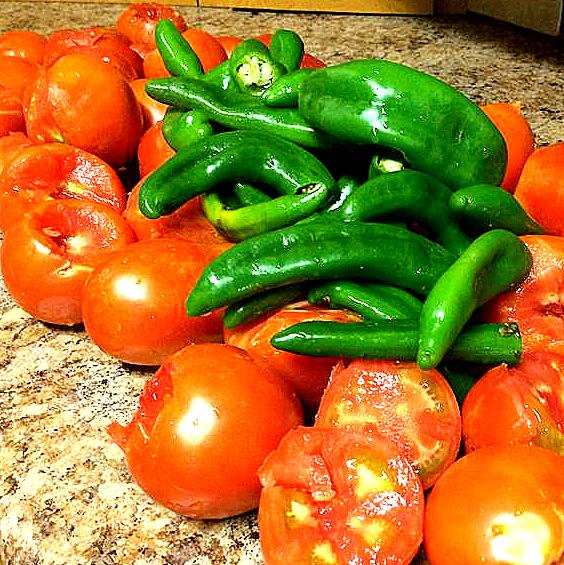
Making salsa with Mom is the best.
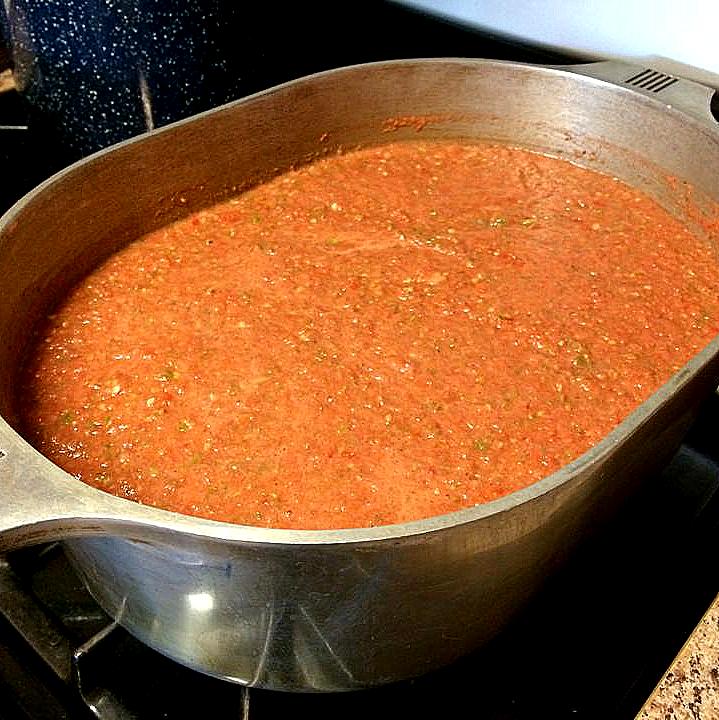
Side #2: The Industrial Farm
*Cue threatening, ominous music*
The evil industrial farm responds unequivocally to the equally evil Monsanto’s every whim. An industrial farm is run by a dictator rather than a farmer, one who cares little about the quality of the soil or the health of the earth.
The industrial dictator carelessly sprays toxic chemicals until the groundwater is no longer drinkable. The cattle on this farm are not for milking. Instead they live in tiny, over-crowded pens for the duration of their short, miserable lives.
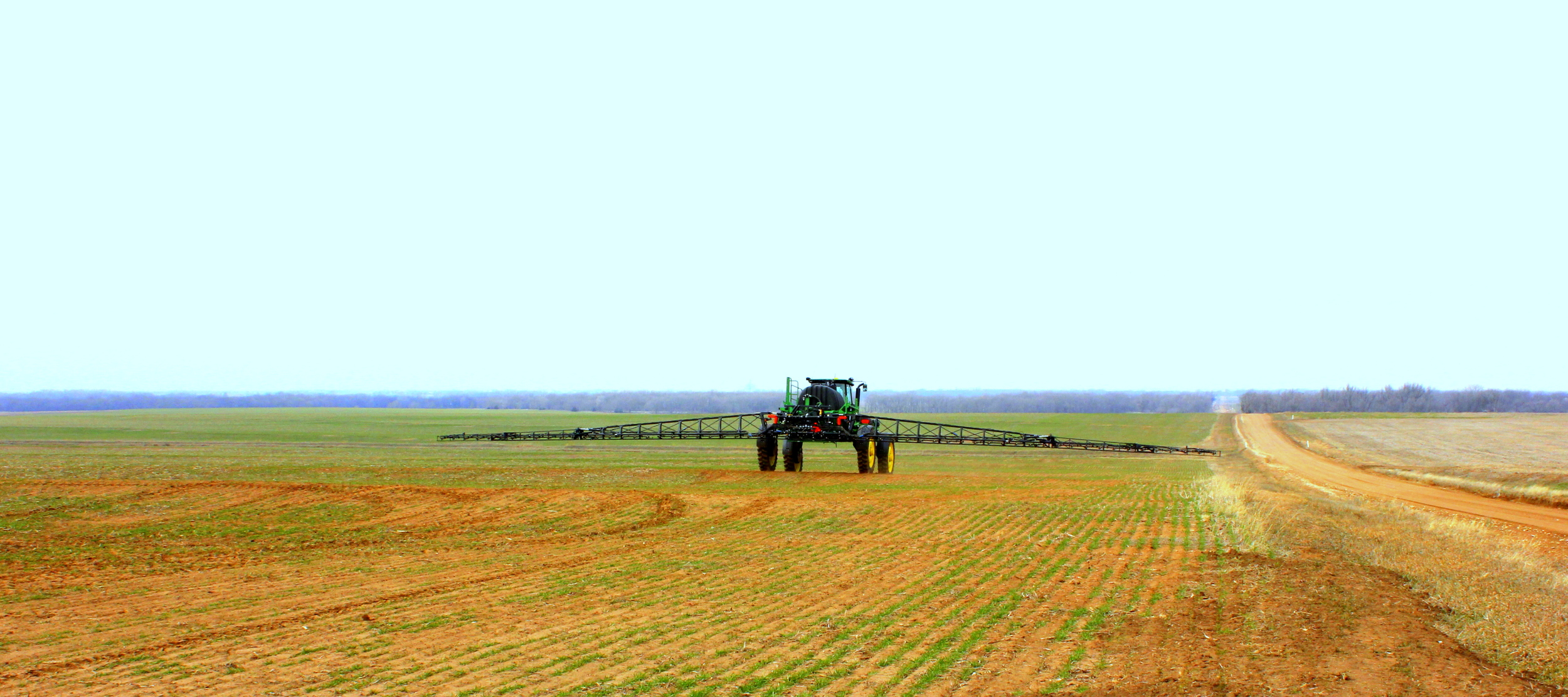
Carefully applying fertilizer to help the crops grow
The Truth
In actuality, none of those images are real. I grew up on a real, live farm, but never have I ever milked a cow. I did once have the honor of helping pull a calf — that is, helping a calf to be born. It was an incredible, gross, bloody miracle. I loved every second of witnessing that which is a very common occurrence for ranchers across the country.
We didn’t have chickens on our farm. But we did raise fresh sweet corn in the summer. We only grew boring crops (in my childhood opinion), but I did love to ride the combine (okay, I still do).
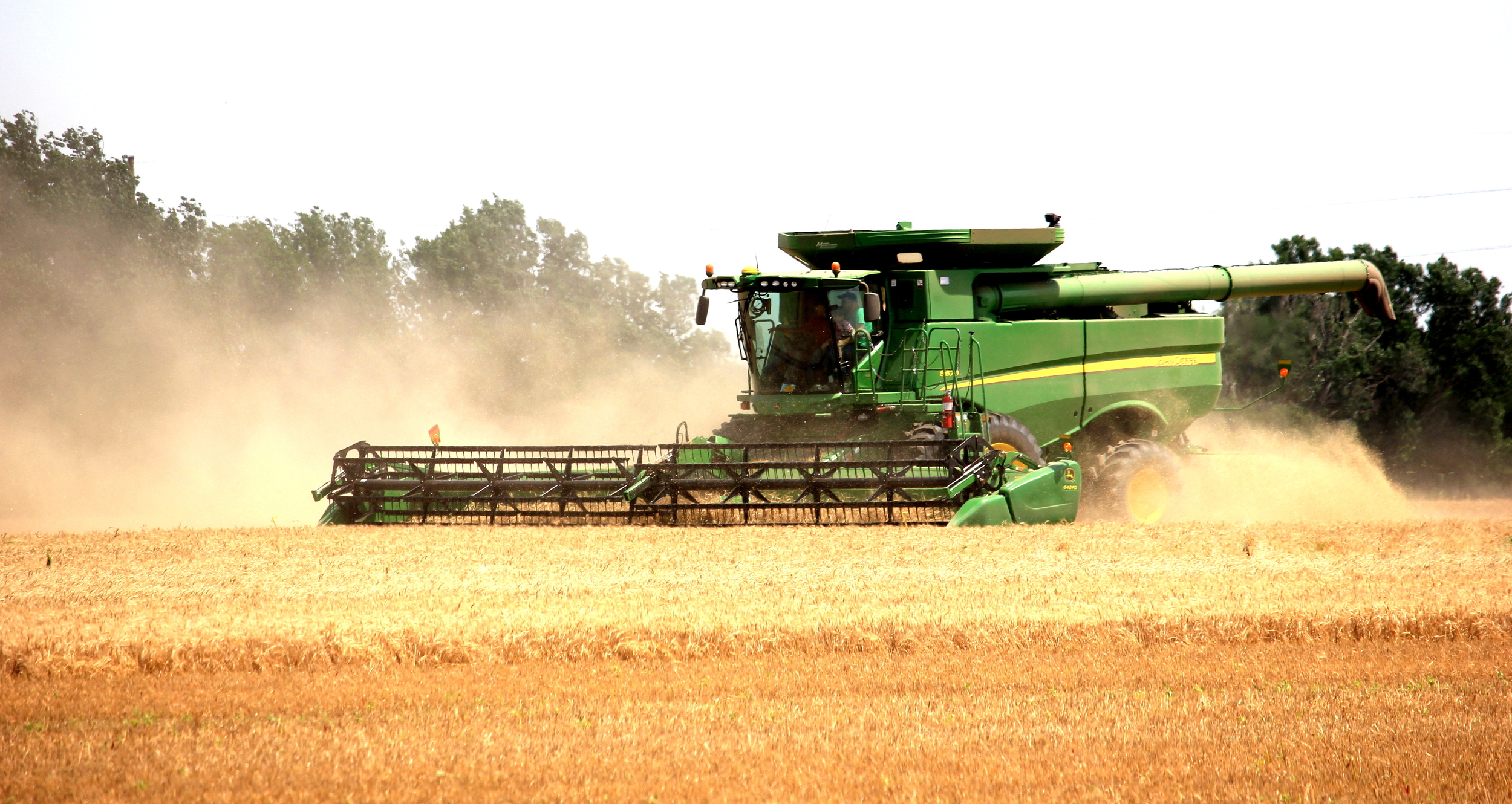
Wheat harvest 2014
My dad cares about the quality of his soil. In fact, he is very invested in caring for his land. You know why? It feeds his family. It put me through college. It’s paying for his retirement.
You see, today’s family farm is neither a story-book picture in which farmers frolic through their green fields, nor are they evil monsters intent on destroying the earth and torturing animals.
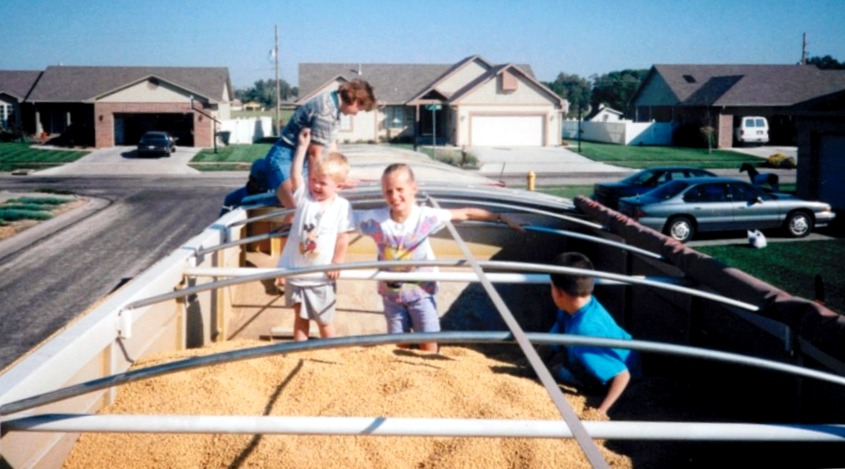
Playing in a truckload of soybeans with Aunt Sue, cousin Trent, and brother Ray, circa 1998
Today’s farmer is a businessman. He (or she) makes economic decisions about which crops to plant, what fertilizer to apply, and how to manage weeds and pests. Farmers don’t plant cover crops because they think they might be good. They plant them (or don’t plant them) because they increase (or have no effect on) the productivity of the soil.
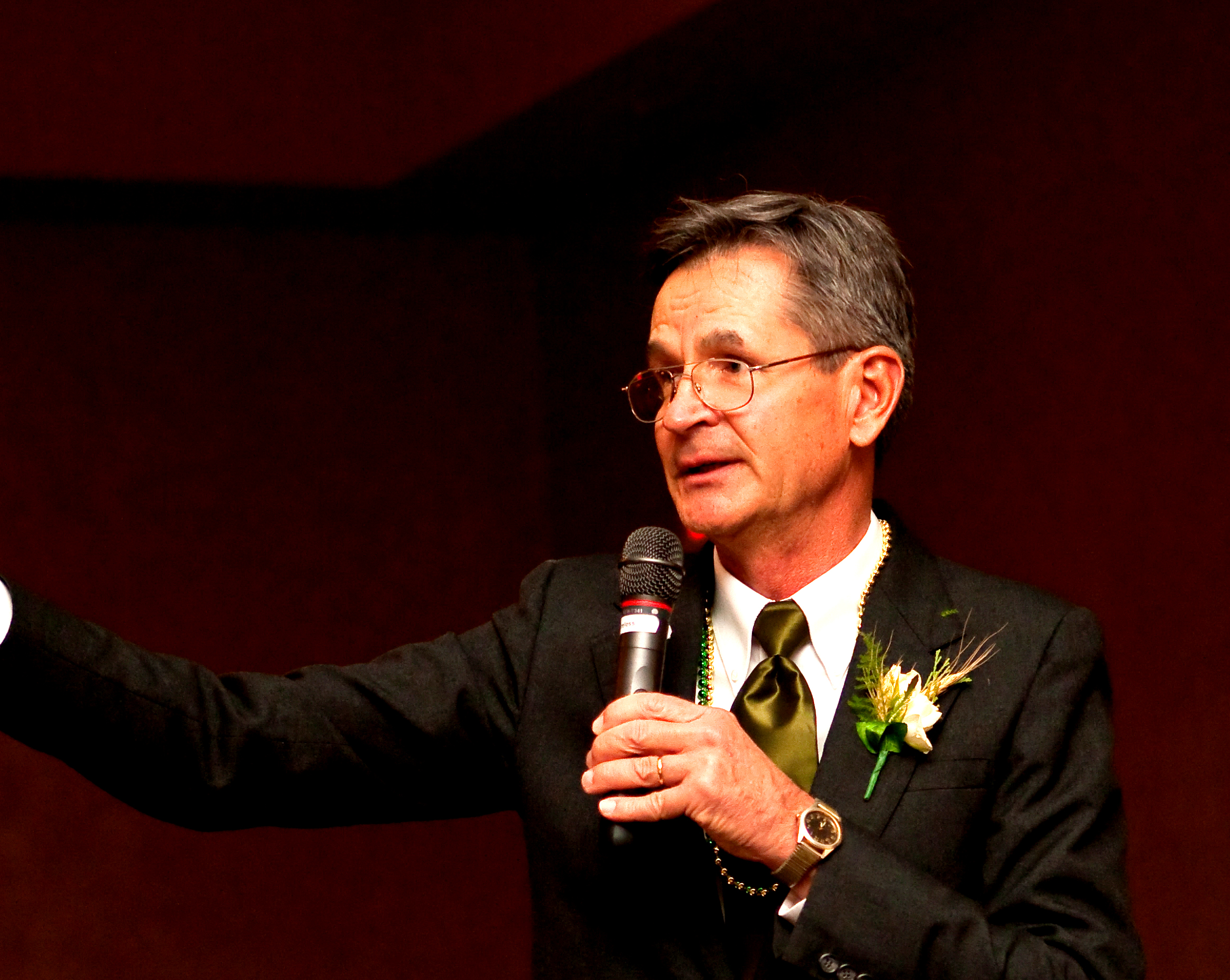
Lee Scheufler, father, farmer, and businessman
Over the next year, I would like to invite you to virtually tour my family’s farm. My intent is not to pass judgment or make recommendations, but merely to inform. People need to know. Leaders, politicians, consumers — we all need to know where our food comes from so we can make thoughtful decisions to make our world better.
Through each season, together we’ll look at how crops in central Kansas are planted, nurtured, rotated, and harvested. My dad is only one farmer. There are many who do things differently than him, but there are many who are as thoughtful as he is.
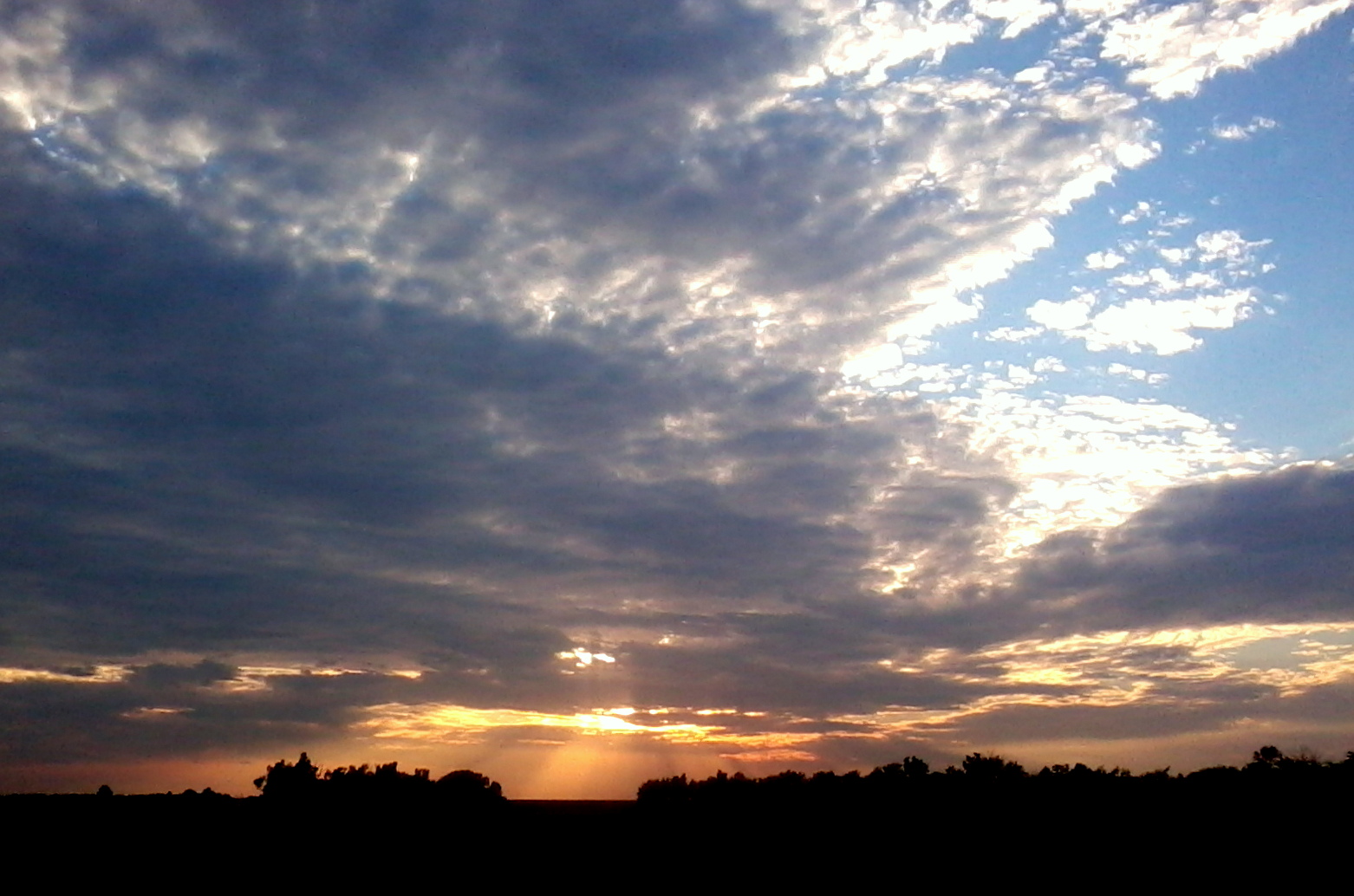
It’s hard to beat a Kansas sunset
Don’t write off the American farmer. Please, listen to his story, listen to my story. Listen to our story.
With love, from Peas and Hoppiness.
6 thoughts on “The Modern “Industrial” Family Farm”
I love this post and especially the pictures. (The one with you kids and Trent in the wheat truck is actually me, not your mom, but I consider it a compliment…). Looking forward to more stories.
Oops! Sorry for that error; I’ll make that change. Thanks for your comment!
Ann – thank you, thank you, for your inspiration and dedication to a most beautiful and bountiful occupation, and one that is so dear to our family. I look forward to seeing your future blogs about the seasons! Lisa Ney
Thank you, Lisa! Your words mean a lot.Thank you for your support!
I can’t wait to hear more about modern farming! It’s definitely something our generation needs understand better. Plus, your parents are awesome 😉
Thanks, Caitlin! Yes, I’m very excited to introduce the world to my parents. 🙂